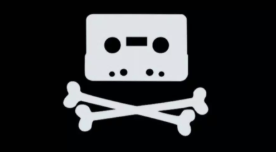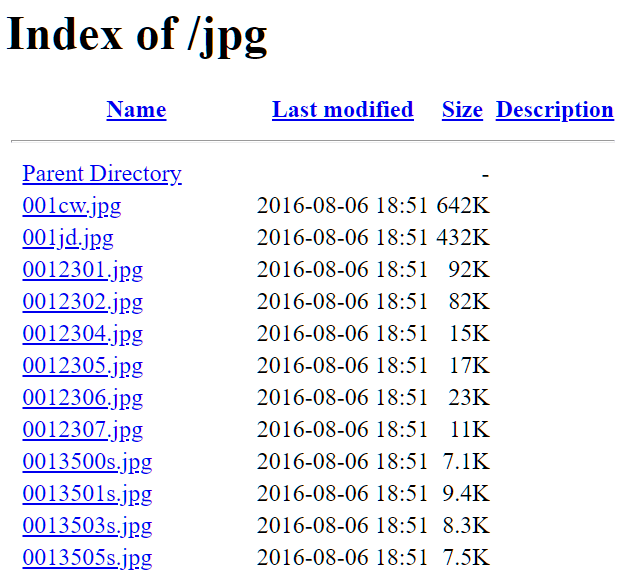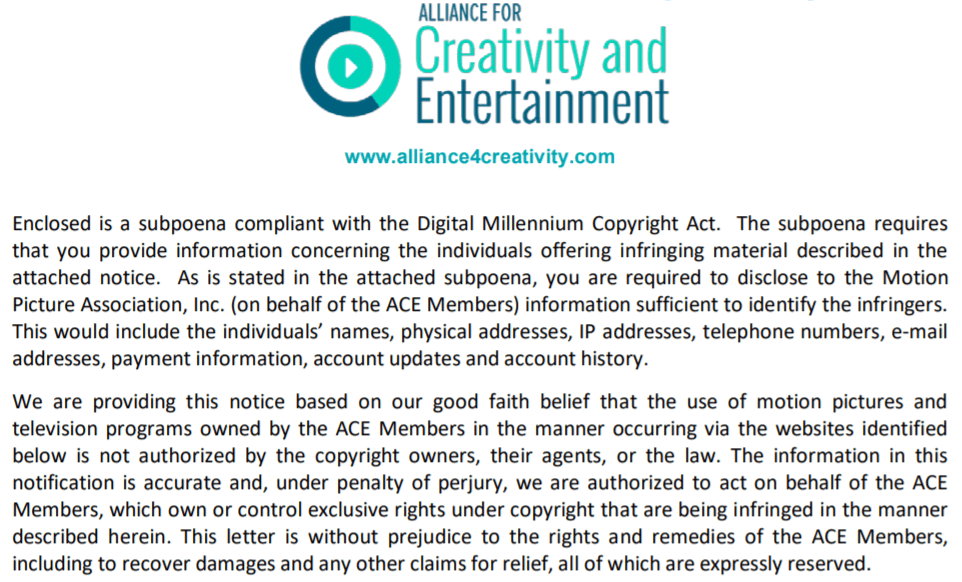-
chevron_right
BREIN Cracks Down on ‘Open Directory’ Piracy – But What is It?
Andy Maxwell · news.movim.eu / TorrentFreak · Sunday, 15 November, 2020 - 12:12 · 4 minutes
 Dutch anti-piracy group BREIN aims to tackle all kinds of piracy, wherever and however it takes place online.
Dutch anti-piracy group BREIN aims to tackle all kinds of piracy, wherever and however it takes place online.
From popular P2P technologies such as BitTorrent through to streaming portals and the well-established protocols of Usenet, BREIN can be found working in the background to prevent people from distributing and obtaining content without permission.
This week, however, the company revealed it has been targeting one of the oldest and most basic file-sharing methods still in existence today.
BREIN Targets Open Directories
In an announcement Thursday, BREIN said it had been successful in shutting down several dozen ‘open directories’ which offered tens of thousands of eBooks to the public without permission from rights holders. As is often the case, BREIN contacted hosting providers with copyright takedown notices, taking the directories offline.
In some instances, where BREIN was able to identify those responsible, directory operators were given the opportunity to settle the complaint by taking their offering down, paying BREIN’s costs, and agreeing not to infringe copyright in the future.
So what are ‘open directories’ and how do they work?
An Ancient, Basic, Yet Intriguing Way to Offer Files
In a nutshell, ‘open directories’ are just that – directories (or folders, to use Windows terminology) filled with content that is easily accessible to users via the web.
Most of these directories are put in place by someone in charge of a website and/or server. With some free hard drive space available, the individual might choose to upload a bunch of family photographs, documents (or indeed an entire media collection) so that they can be accessed from anywhere or used to serve content to a website.
Neglecting to protect directories with a username and password, for example, renders them ‘open’ but, in many cases, these folders are left unsecured on purpose, placed on a regular server for sharing with others, or in some instances, on an unsecured third-party’s server which then acts as an unauthorized file ‘dump’.
None of this is particularly glamorous or technologically advanced but what open directories offer is a huge quantity of media accessible to anyone for downloading directly to their machines, using only a web browser.
Since by their very nature they don’t require a login, password, or special tools, the only obstacle is how to find these directories in the first instance. However, since they are a part of the web itself, the majority are discoverable using Google or a similar search engine.
Finding Open Directories is Easy
One of the most basic ways to find open directories is to Google the search term index / (or intitle:\”index.of\” ) followed by the type of content sought. The image below reveals Google’s results following the most basic of searches for directories referencing the image format JPG.
The very top result is indicative of the kind of unusual content one is likely to find with such an unsophisticated search. Found at ‘ e-hand.com/jpg/ ‘, the directory appears to consist of an image library showing deformed, injured, or otherwise non-regular hands.
Of course, images of wonky hands is a fairly niche topic so it’s likely that people will want to stretch their legs a little, using more sophisticated techniques to find content of interest. Again, Google is a great starting point and for those with the right skillset, elaborate search parameters can be combined to produce the required results.
For those who don’t have the necessary ‘Google-fu’ or simply can’t be bothered, there are tools that do all of the heavy lifting, such as the Google Open Directory Search , the Open Directory Search Tool , or more flashy examples such as File Pursuit . There are even communities dedicated to revealing what other searchers have found.
Warning: Open Directories Can Contain Anything
Finally, it’s worth pointing out while some open directories are goldmines of popular movies, music, TV shows plus rare and sometimes unusual personal content, they are also home to mountains of ‘junk’ that are only of interest to the person who put them there. In some cases, they can also contain material that some may find offensive due to its adult nature but there are other risks too.
Unlike some other indexes, these directories are totally unmoderated, meaning that the ‘game’ or ‘app’ you’re about to download could be infested with malware, have been maliciously mislabeled, or may take days to download only to yield nothing of interest. Importantly, open directories are not inherently ‘pirate’ either, they’re just shared folders that can and do contain just about anything.
The same can be said about open Google Drives, which can be found by pasting the search phrase site:drive.google.com +”drive/folders” into Google. These are not open directories in the pure sense of the term but still yield similar results, with the exception that all files are actually hosted (rather than just indexed) by Google.
In any event, the content on offer in many of these directories is often interesting to users despite it being potentially risky to offer, especially when entities like BREIN are on the prowl.
From: TF , for the latest news on copyright battles, piracy and more.




 Most developers can only dream of creating software that’s used by hundreds of millions of people across the globe.
Most developers can only dream of creating software that’s used by hundreds of millions of people across the globe.

 With more ways to stream online video than ever before, protecting video continues to be a key issue for copyright holders.
With more ways to stream online video than ever before, protecting video continues to be a key issue for copyright holders.

 With millions of regular users per day, The Pirate Bay is arguably the most visited torrent site on the web.
With millions of regular users per day, The Pirate Bay is arguably the most visited torrent site on the web. Lawsuits against alleged movie pirates are nothing new. We have reported on many dozens over the years.
Lawsuits against alleged movie pirates are nothing new. We have reported on many dozens over the years.
